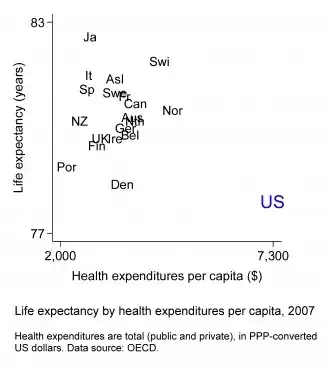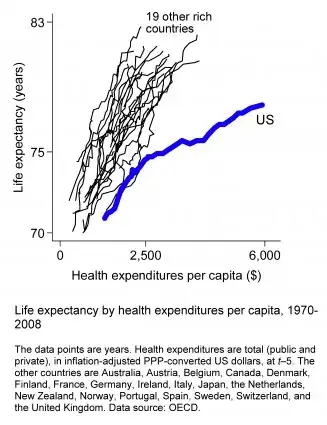The USA is an outlier on many health-related statistics. A larger percentage of GDP goes on healthcare than almost anyone else yet outcomes are not as good as many other wealthy western countries. It is worth looking at a variety of different statistics to get a good feel for this (and for direct comparisons against the countries who do better). For example, this chart shows comparisons versus other wealth countires in spend versus overall life expectancy:

This chart shows the change over time (incidently demolishing several arguments about American exceptionalism):

Both charts from here. And it is worth reading the discussion (and the further commentary here on how good the charts are).
Given the general pattern in health statistics it should not be a surprise that US infant mortality is bettered by many other wealthy countries.
But you can check the statistics yourself interactively on Gapminder at www.gapminder.org and I would recommend looking at the plot of total health spending as % of GDP versus infant mortality (and look at the trends over time). But, don't take my word for this, go and look at the data.

